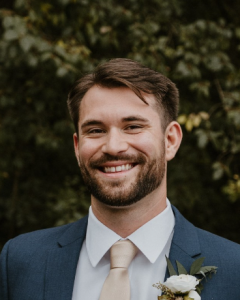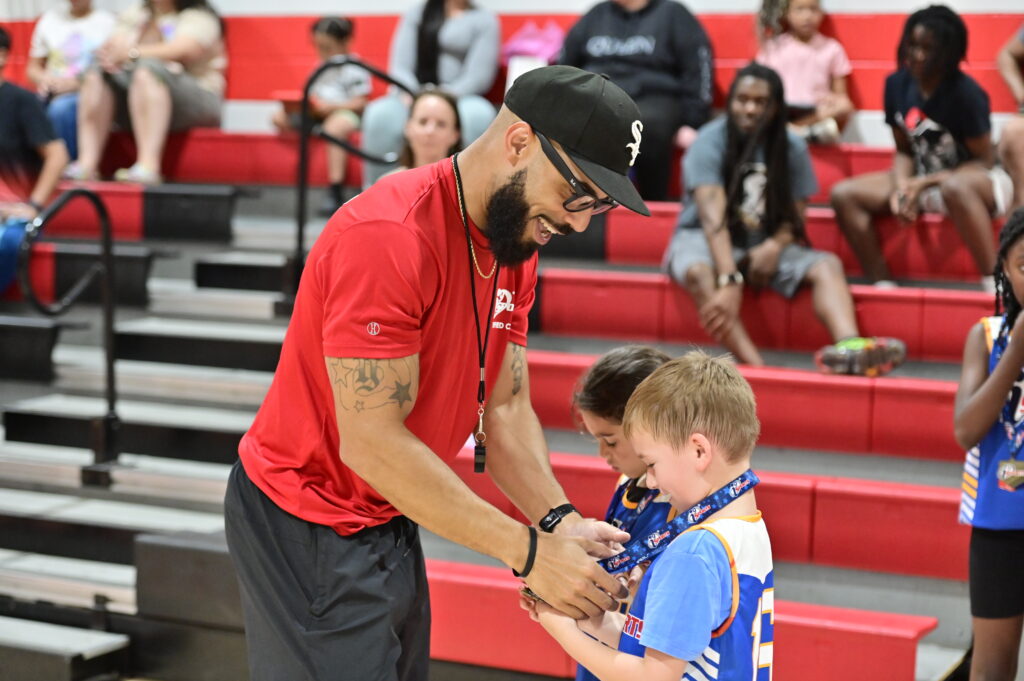3 Necessary Mental Skills to Teach Your Young Athlete
The best athletes don’t just train their bodies; they train their minds. The greatest coaches know how important it is not only to prepare their athletes physically but also to mentally prepare them. But mental skills like positive self-talk, effort-based focus, and handling pre-game nerves aren’t just for elite competitors—they’re just as important for young athletes to learn as they play and develop in sports!
As a parent, you have the power to introduce these mental skills in ways that make a lasting impact. Here are a few mental skills and how you can teach them to your athletes this season!
1. Positive Self-Talk
The way young athletes talk to themselves—internally and out loud—affects their confidence, performance, and resilience. Negative self-talk like “I’m terrible at this,” or “I can’t do it,” can quickly spiral into frustration and doubt. Instead, teach them to replace those thoughts with constructive, positive self-talk.
4 Tips to Implement Positive Self-Talk This Season:
- Model It – Use positive self-talk yourself! When giving feedback, say things like, “That was a great effort! Let’s try again and see what happens.”
- Create Team Phrases – Have athletes come up with short, positive mantras they can say before or during games, like “I am strong” or “I keep going.”
- Challenge Negative Talk – When you hear athletes saying, “I can’t do this,” guide them toward a growth mindset: “You can’t do it YET. Let’s break it down and keep working at it.”
- Use Role Models – Point out and provide examples of professional athletes using positive self-talk in interviews and games.
2. Focus on Effort, Not Outcomes
Young athletes often judge success based on wins, stats, or external praise. While striving for success is great, an overemphasis on outcomes can create pressure and fear of failure. Instead, shift their focus to effort, progress, and learning.
4 Ways to Switch the Focus to Progress Over Outcomes:
- Praise the Process – Instead of saying, “Great job scoring that goal!” say, “I love how you stayed focused and hustled to make that goal happen.”
- Effort-Based Goals – Set goals that focus on controllable actions, like “Take 10 quality shots on goal today” instead of “Score two goals.”
- Highlight Small Wins – Recognize improvements in skills, teamwork, and attitude, not just game results. “Great job keeping your head up and staying positive today champ, it was a tough game!”
- Reflection Time – After games, calmly discuss what your athlete thinks went well and what he/she can improve on, without making it all about the score.
3. Help Athletes Handle Pre-Game Nerves
It’s normal for young athletes to feel nervous before games. Instead of trying to eliminate nerves, help normalize their nerves and transfer that energy into positivity.
Tips on How to Handle Pre-Game Nerves This Season:
- Normalize Nerves – Remind athletes that even pros get nervous. It means they care!
- Teach Controlled Breathing – Before games, have your player or team practice slow, deep breaths to calm their minds and bodies. It doesn’t have to be a full meditation session, just a handful of deep breaths with a motivational pep talk can do wonders for their nerves.
- Create Pre-Game Routines – Have a consistent warm-up routine that includes stretching and encouragement to build confidence before game time. Pros have pre-game rituals for a reason! It helps calm their nerves and focus their attention to the game ahead.
Mental skills are just like physical skills—they take time, repetition, and encouragement to develop. Whether you’re a parent, a coach, or both, you’re equipping your kids with tools they can use on and off the field for years to come.
Remember to start small and be consistent. Then, watch your athlete grow—not just as a player, but as a confident, resilient individual.
About the Author

Tyler Munoz
Manager Of Sport, i9 Sports®
Tyler is responsible for creating and implementing national training programs for coaches and over 240 franchisees to achieve the company’s mission to help kids succeed in life through sports.
Tyler grew up in Modesto, California, playing baseball, basketball and football from the age of 5. Sports have always been at the center of his life and have been something that he has dedicated his life to making a positive impact in.
He discovered his passion - supporting coaches to ensure they can provide a quality sport experience to the athletes that they coach during his education at California State University, Fresno. He earned his Master of Arts in Kinesiology – Sport Psychology and his Bachelor of Arts in Political Science with a Minor in Sport Coaching from California State University, Fresno.
After graduating, Tyler spent a year in New Zealand and Australia, where he studied and participated in the two countries’ sport environments, athlete development systems, and coaching models.
After his travels, he joined the United States Olympic and Paralympic Committee’s (USOPC) Coaching Education Department as the American Development Model and Youth Development fellow. Tyler was able to collaborate and coordinate sport development projects with several National Governing Bodies and assist the Coaching Education team with creating and updating resources related to coach training and the American Development Model.
Tyler continued to consult with the USOPC on initiatives related to the American Development Model the Quality Coaching Framework and ultimately, developed an online course, Foundations of the American Development Model. In 2020, he accepted a position with USA Football as the Senior Manager of Coach Education.
During his three years there, he was able to redesign the organization’s coach education certification, which led to USA Football achieving its’ one millionth coach certification in 2022. Tyler has coached football, baseball, and basketball at all levels of sport (recreational, scholastic, national, and international) throughout his life and is passionate about giving back to the communities in which he has lived.
Presentations and Awards:
College of Health and Human Services- Outstanding Project Award
Presented graduate project at the 39th Annual Central California Research Symposium
Olympic & Paralympic Coach Magazine Spring 2020- ADM & Me: Insights in Learning from my USOPC Fellowship
Presented at the USA Football National Conference 2020
Presented at the National Post Olympic and Paralympic Conference of Sport & Science at the Wingate Institute in Israel
What Does Fun Look Like? - Interview with Athlete Era
